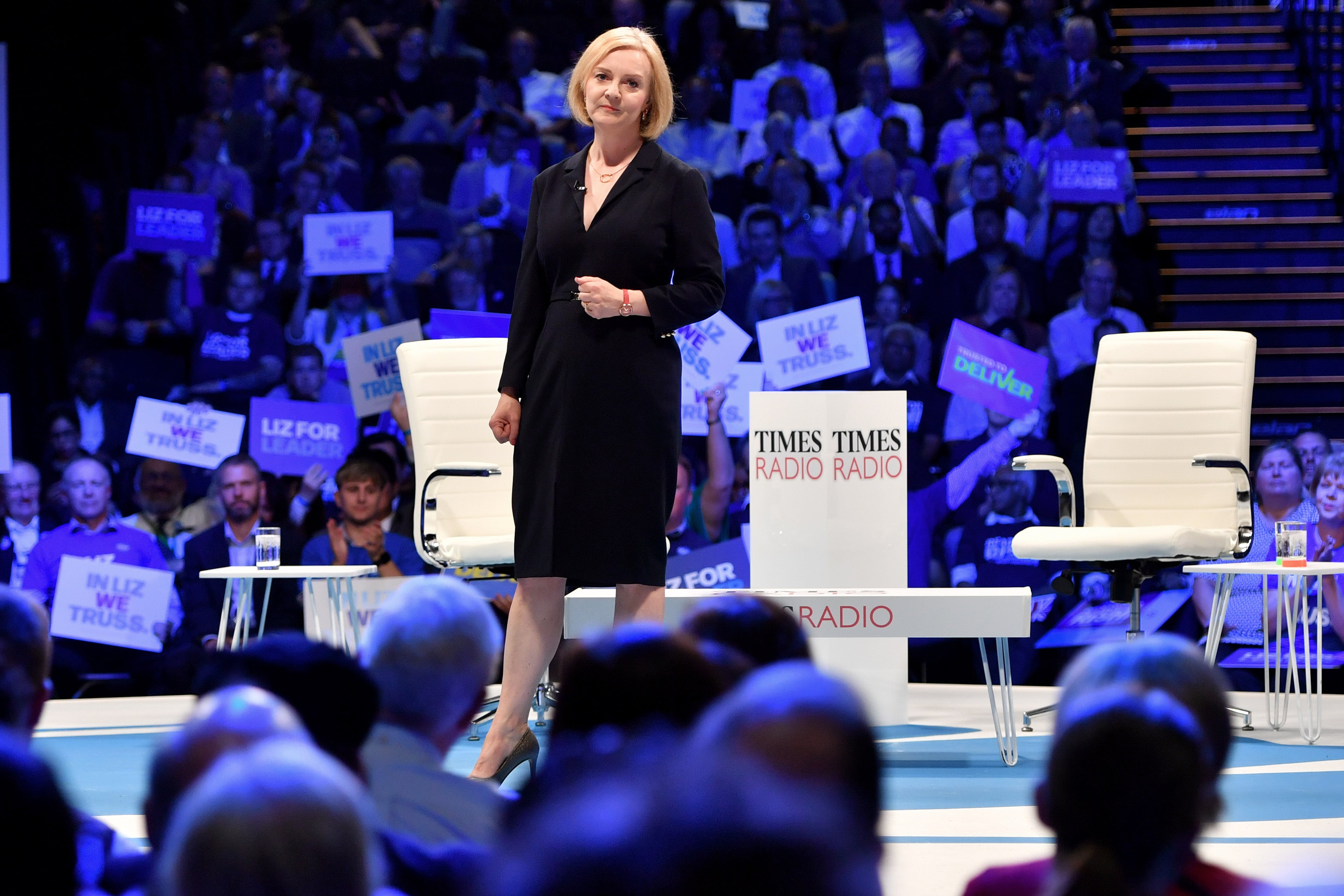Questions on nuclear weapon use are tricky for any prime minister (or would-be PM)
Asked how she’d feel about pushing the button, Liz Truss answered as if in a job interview for head of sales, write Sean O’Grady


Soon we may all become even more familiar with Liz Truss’s curiously deadpan way of speaking, a kind of monotone-with-pauses that sounds both unnatural and, as a result to my ear, unconvincing.
Hence her matter-of-fact response to questioning during the Tory leadership hustings in Birmingham about the use of the British nuclear deterrent, something that could quite conceivably result in some heavy consequences.
The moment of truth arrived when host John Pienaar asked the putative PM if she would give the order “to unleash nuclear weapons” from Trident in truly apocalyptic terms: “It would mean global annihilation. I won’t ask you if you would press the button, you’ll say yes, but faced with that task I would feel physically sick: How does that thought make you feel?”
One can imagine, indeed recall, how Margaret Thatcher and Tony Blair used to deal with such a public challenge. There’d be a slight outage, a little pursing of the lips, a furrow of the brow, and then a measured response loaded with the import of their solemn duty and obligation to protect the British people. Truss, by contrast, just stared ahead, and answered as if in a job interview for head of sales or a rookie parliamentary candidate: “I think it’s an important duty of the prime minister and I’m ready to do it. I’m ready to do that.”
Something in the answer suggested to me, that, even as foreign secretary, Truss hadn’t invested much thought in the possibility, despite the fact that Russian voices have publicly floated a nuclear escalation of the war in Ukraine. You might have expected some elaboration about how important the deterrent is, how it works, how it wouldn’t be used aggressively but only in defence of the UK, its overseas territories and its defence allies and partners, while not betraying the secret contents of the “letters of last resort” issued to the Royal Navy’s four nuclear submarine commanders in the event that the PM and the rest of the UK government is no longer functioning.
Truss has previously committed to renew the nuclear deterrent, but so has everyone in her party, as well as the Labour leadership. Truss says the Trident missiles on board the forthcoming Dreadnought-class nuclear subs aim to “deter the most extreme threats to our national security and way of life”.
Perhaps fortunately, the same dilemma wasn’t put to Rishi Sunak. Truss’ earnest “head boy” rival might well have echoed the widely ridiculed response Ed Miliband gave in the prime ministerial interviews in 2015. Asked by Jeremy Paxman if he was “tough enough” to be prime minister, Ed blurted out “hell, yes!”. It was meant to sound inspiring, like something John Wayne might come out with, but with Ed’s delivery and accent - so reminiscent of Sunak’s - it did not have the desired effect.
So, as Thatcher and Blair demonstrated, there is a sober, determined, impressive way to deal with life-and-death questions, a middle way between Truss’s bloodless answer and Miliband’s absurd theatrics.
Of course, the British independent deterrent, as the old quip goes, is neither independent nor always much of a deterrent. It depends heavily on US technology licensed to the UK, and it’s unthinkable that, outside planetary near-annihilation, the missiles would be actually fired without the support of America. Nor has it deterred, say, the Argentinians from invading the Falkland Islands in 1982 or any number of other international flashpoints in recent decades.
In any case, the circumstances in which Prime Minister Truss would use such weapons will remain secret and, if it comes to it, it’s unlikely the UK would see another general election where she might be held to account. Ironically, it is a question that can only be answered finally and conclusively in circumstances in which no one will be around to hear the answer.
Join our commenting forum
Join thought-provoking conversations, follow other Independent readers and see their replies
Comments
Bookmark popover
Removed from bookmarks